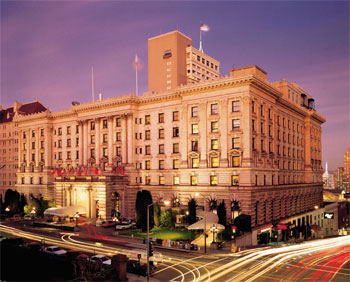Secure hotels require more than just CCTV cameras
|
Closed-circuit television cameras are being used more than ever in the hotel industry, but they’re not a solution for all problems related to crime or loss prevention. And in some cases, they might do more harm than good. As technology improves and the cameras and equipment become more widespread throughout several industries, prices have declined. |
|
|
Affinia recently switched to digital video recorders, which improves its ability to store, retrieve and transfer data. The company has between 15 and 30 cameras per hotel, depending on the property’s size. Larger properties often have more cameras. The 591-room Fairmont Hotel San Francisco uses 50 to 60 IP CCTV cameras and recently upgraded to a hard-drive digital system for improved monitoring and storage. Perry Miller, director of security and safety for the hotel, said IP CCTV is valuable because it assists law enforcement. “We just assisted the police department in closing three cases,” Miller said. “It’s easy to copy a disk and give it to law enforcement or the insurance company to review.” Despite its increased usage, IP CCTV isn’t a solution for every problem. There are three main reasons to install IP CCTV cameras in a hotel–to protect customers, protect assets or control access, according Chad Callaghan, v.p. of loss prevention for Marriott International. “We use cameras on the front desk to protect employees after hours in our select-service properties,” Callaghan said. “We’ll also use them to protect assets, such as in a liquor storage room, to prove that something was taken.” |
|
|
Using IP CCTV to monitor the front desk has helped reduce the number of armed robberies, according Ray Ellis Jr., director of the Loss Prevention Management Institute at the Conrad N. Hilton College of Hotel & Restaurant Management at the University of Houston. Monitoring guests While IP CCTV cameras often are a deterrent to crime, they need to be more than that when they’re used to monitor customers. Callaghan said Marriott’s policy is to use IP CCTV to protect guests where hotel employees can monitor the cameras and respond. “Don’t put them up to protect guests if you cannot respond,” he said. “Customers see them and assume somebody is monitoring them. Used properly, they are a great enhancement to security and loss prevention, but they are not a panacea and cannot stand alone.” |
 |
|
“You have to be able to respond to a guest threat that you are taping,” he said. “The failure to respond puts the punitive damages in the millions of dollars because juries cannot understand how you can go to the trouble to tape an act of violence, but not do something to help prevent it.” |
|
| Potential liability is a frightening issue that has scared some hotels away from using IP BASED CCTV.
“I know of hotels that have pulled them out on the advice of their attorneys,” said Rick deTreville, security consultant to the Florida Hotel & Motel Assn. “Many hotel cameras are there for evidentiary value–to record the incident and view it after it happened. Only international airports and casinos continuously monitor their cameras.” “It is tougher to stop third-party crime in the parking lot than inside the hotel,” he said. If hoteliers remove IP CCTV from public areas, they might be inviting an even larger lawsuit. “I’m sure hoteliers would never admit to doing that,” said Anthony Marshall, dean emeritus of Florida International University and a longtime practitioner of hospitality law. “If they took them out, and you could get an employee to admit to that in a trial, [hotel management] would be hung by the yardarm.” Marshall said common law requires hoteliers to exercise reasonable care for the safety and protection of guests. He said hotels using IP CCTV cameras to protect guests need to monitor the cameras with trained, competent staff members and respond if a guest is in danger. If not, the hotel at least should post signs that state premises are video recorded only and there’s no monitoring. Ellis said hotels can purchase 24/7 video monitoring services via satellite. “The response can be just as quick as somebody who is monitoring it on the property because either person has to respond by calling 911 or somebody at the hotel,” he said. Callaghan said monitoring IP CCTV via satellite is less desirable because it’s expensive, especially for continuous monitoring. |
|
|
Source : http://findarticles.com/p/articles/mi_m3072/is_5_219/ai_114717525/?tag=mantle_skin;content |
|







February 6th, 2012 at 3:45 am
women hairstyles…
Hello There. I found your blog using msn. This is an extremely well written article. I’ll make sure to bookmark it and come back to read more of your useful information. Thanks for the post. I’ll certainly return….